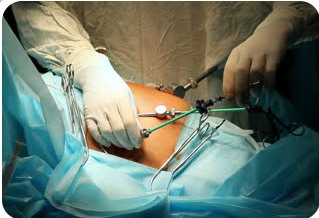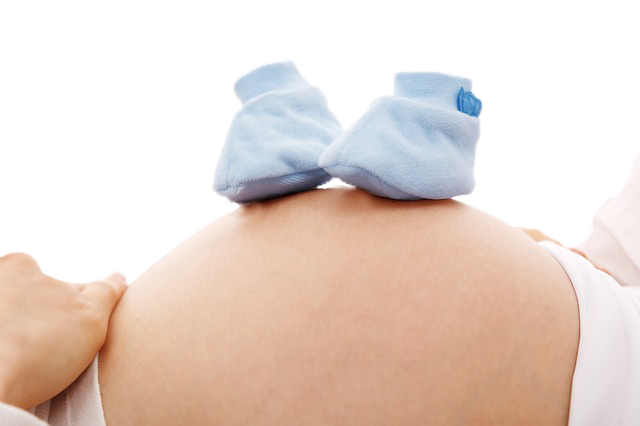A high-risk pregnancy is a condition that places both the mother and her developing fetus at higher than the normal risks of complications related to pregnancy during the maternity or after the delivery.
A high-risk pregnancy can create difficulties before, during or after delivery. Women with high-risk pregnancy need special monitoring and pre-natal care. The baby inside her womb also requires regular monitoring to keep a track of its development. It is important for every pregnant woman to understand the causes of high-risk pregnancy so that she can take care of herself properly and also of her baby.

Risk Factors for a High-Risk Pregnancy
In particular cases, high-risk pregnancy occurs due to certain medical conditions present in the woman before pregnancy. In other cases, medical conditions may develop during the pregnancy. The high-risk complications can either be for the mother or her child or both.
Particular Factors Contributing To A High-Risk Pregnancy Are:

In particular cases, high-risk pregnancy occurs due to certain medical conditions present in the woman before pregnancy. In other cases, medical conditions may develop during the pregnancy. The high-risk complications can either be for the mother or her child or both.
Advanced maternal age
Risk in pregnancy is higher for women of the age of 35 and beyond.
Lifestyle choices
Use of tobacco in any form, alcohol consumption and addiction to illicit drugs can put a pregnancy at risk.
Medical History
A former C-section delivery, preterm birth (birth before 37 weeks of pregnancy), or low birth weight baby might increase the risk in the succeeding pregnancies. Other factors of risk comprise of a family medical history of genetic conditions, the prior death of a baby soon after birth or a history of pregnancy loss/miscarriage.
Underlying Conditions
Chronic conditions, like diabetes, epilepsy, and high blood pressure increase the risks of pregnancy. Any blood condition, like as anemia, an underlying mental health condition, or an infection can also cause the rise of pregnancy risks.
Pregnancy Complications
There are various complications that develop during the pregnancy period. There are problems related to the uterus, cervix or placenta. There could be other complexities like:
- Low amniotic fluid (oligohydramnios)
- Too much amniotic fluid (polyhydramnios)
- Restricted fetal growth
- Rh (rhesus) sensitization
Rh(it is a medical condition that occurs if the mother’s blood group is Rh negative and the baby’s blood group is detected to be Rh positive.)
Multiple Pregnancies
There are higher risks of pregnancy for women who are carrying twins or may be higher multiples. Would-be-moms, who are pregnant with two or more should be attended carefully and given extra care as her body is in strain due to multiple carriages. The babies born out of such pregnancy shall also be given extra attention as they are prone to birth intricacies, especially when born early.
Obesity
Mothers with a body mass index (BMI) of 30 or more are prone to the followings during their pregnancy:
- Gestational diabetes
- Type 2 diabetes, and
- High blood pressure
Such females usually require a labor induced or a cesarean delivery
Preeclampsia
This is a medical condition which might occur in the second half of pregnancy. Under this syndrome, the mother tends to develop a high blood pressure and undissolved protein leaks into her urine. This slows down the baby’s growth and also affects the mother’s health. Preeclampsia can only be cured by Giving birth. Hence, this syndrome creates conditions where the mother may need to deliver her baby early.
Gestational Diabetes
Gestational diabetes develops during pregnancy. It can be controlled by maintaining a healthy diet, usually prescribed by the doctor during this period, and medication, such as insulin. Uncontrolled gestational diabetes causes:
- Preterm birth
- High blood pressure, and
- Preeclampsia
Birth Defects
Every 3 babies out of 100 are recorded to have a birth defect. Some cases of birth defects can be found out by using ultrasound or genetic testing before the child’s birth. When a birth defect is diagnosed in a baby or suspected, the mother and her baby are attended to closely during pregnancy. Based on the type and nature of the defect, the obstetrician will suggest you give birth with required care and attention.
Thyroid Disease
Thyroid issues like underactive thyroid (hypothyroidism) or overactive thyroid (hyperthyroidism) can cause complications for the mother and her baby during pregnancy if the condition cannot be controlled. These problems include:
- Miscarriage
- Preeclampsia
- Low birth weight
- Early delivery of the baby
Doctor’s Care during Your Pregnancy
Females going through high-risk pregnancy should have more doctor visits. She should undergo regular ultrasound tests to assure her baby’s growth. Regular blood pressure checkups and urine tests are also vital during this period. The urine test is done to check the protein leakage (if any) and detection of urinary tract infections.
The gynecologist prescribes required medication for diabetes, high blood pressure, or asthma during this period. Your doctor will prescribe you the required diet or may recommend you to a dietician to eat correctly during this period. Depending on the risk that you are going through, the doctor will advise you physical exercise or other required relaxation therapies to soothe your irritation or stress.
The following advice is for the mother to take care of her and her baby’s heath during the period of high-risk pregnancy:
- Do not miss your doctor’s visits and all necessary tests that she or he periodically prescribes you.
- You have to eat a healthy diet and consume the required amount of protein, milk and dairy products. Also, you need to eat ample fresh fruits, and vegetables. Your dietitian may give you a specific diet chart to maintain.
- Take every prescribed medicine, (iron, protein or vitamins) that the doctor suggests. Do not take any over-the-counter medicines without consulting your doctor first.
- Take folic acid every day during this period. It is a B group vitamin. This reduces the chances of a neural tube defect of the baby and other birth defects.
- Follow the doctor’s instructions for work and exercise.
- Quit smoking during this period. You can consult a therapist to know about various stop-smoking programs that might suit you and medicines. Also, protect yourself from passive smoking.
- Completely restrain yourself from drinking alcohol.
- Always stay away from those who are suffering from colds and other infections.
AMRI SALT LAKE AMRI Hospital
Salt Lake Address : JC – 16 & 17,Near Salt Lake Stedium.
Salt Lake City, Kolkata – 700 091 West Bengal, India
Dial: +91 98308 13736/ +91 9830078757
OPD Timing: Monday, Wednesday & Friday: 4 to 6 pm
Opd appointment: +919831016037
————————————————————————
ILS Hospitals
1, Mall Road, Near Nager Bazar Flyover, Dum Dum, Kolkata, West Bengal 700080
Dial: +91 98308 13736/ +91 9830078757
Visiting Hours: Thursday 5 p.m
————————————————————————–
Columbia Asia Hospital Saltlake
Address : IB-193, Sector-III, Salt Lake, Kolkata -700 091 West Bengal, India
DIAL: + 91 98308 13736/ +91 98300 78757
OPD Timing: Tuesday & Saturday 4 p.m – 6 p.m
—————————————————————————
MILLENIUM CLINIC
TEGHORIA MAIN ROAD, TEGHORIA NEAR VIP ROAD KANCHANJHUNJHA APARTMENT, KOLKATA 700059
TIME : 7 to 9 PM DAILY EXCEPT SUNDAY
Mobile: +91 92306 16647/ + 91 98308 13736
DIAL : 033 2570 3043 / 033 2570 6029
